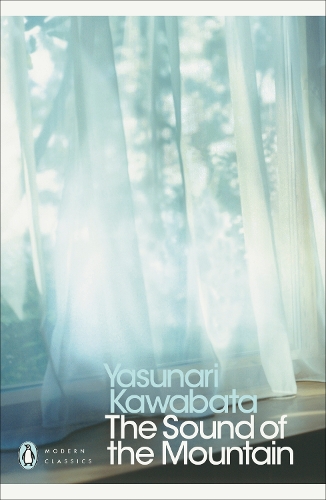
The Sound of the Mountain
(Paperback)
Publishing Details
The Sound of the Mountain
By (Author) Yasunari Kawabata
Translated by Edward G. Seidensticker
Penguin Books Ltd
Penguin Classics
7th March 2011
6th January 2011
United Kingdom
Classifications
General
Fiction
Fiction in translation
895.6344
Physical Properties
Paperback
224
Width 129mm, Height 198mm, Spine 13mm
170g
Description
'Of all modern Japanese fiction, Kawabata's is the closest to poetry' New York Times Book Review Ogata Shingo is growing old, and his memory is failing him. At night he hears only the sound of death in the distant rumble from the mountain. The relationships which have previously defined his life - with his son, his wife, and his attractive daughter-in-law - are dissolving, and Shingo is caught between love and destruction. Lyrical and precise, The Sound of the Mountain explores in immaculately crafted prose the changing roles of love and the truth we face in ageing.
Reviews
Kawabata is a poet of the gentlest shades, of the evanescent, the imperceptible * Commonweal *
A rich, complicated novel. . . . Of all modern Japanese fiction, Kawabata's is the closest to poetry * The New York Times Book Review *
Author Bio
Yasunari Kawabata, winner of the 1968 Nobel Prize for Literature, was one of Japan's most distinguished novelists. Born in Osaka in 1899, he published his first stories while he was still in high school. Among his major novels published across the world are Snow Country (1956), Thousand Cranes (1959), The Sound of the Mountain (1972), and Beauty and Sadness (1975). Kawabata was found dead, by his own hand, in 1972. Yasunari Kawabata was born near Osaka in 1899 and was orphaned at the age of two. His first stories were published while he was still in high school and he decided to become a writer. He graduated from Tokyo Imperial University in 1924 and a year later made his first impact on Japanese letters with Izu Dancer. He soon became a leading figure the lyrical school that offered the chief challenge to the proletarian literature of the late 1920s. His writings combine the two forms of the novel and the haiku poems, which within restrictions of a rigid metre achieves a startling beauty by its juxtaposition of opposite and incongruous terms. Snow Country (1956) and Thousand Cranes (1959) brought him international recognition. Kawabata died by his own hand, on April 16 1972.
